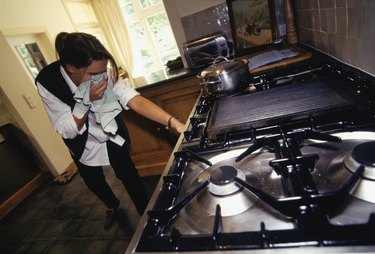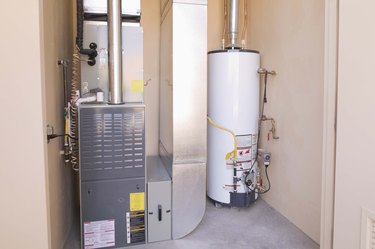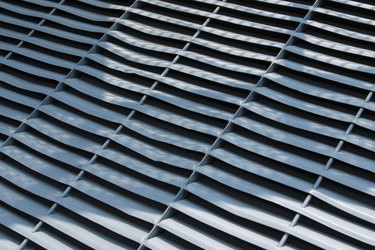
Fuel oil is used in various applications around the house. Sometimes it is used in portable heaters that are carried from room to room where they warm the surrounding air and save money on heating costs. Other oil heaters are stationary furnaces which draw air in from around the entire house before heating it and cycling it back into the rooms through a venting system. If people inside the house can smell the oil used for heating, there is a problem with the system.
Spills
Video of the Day

The smell of oil is one indication that the oil spilled within the house. For portable systems, this is a sign that the heater has tipped over and spilled oil from its container. For stationary furnaces, oil tanks or pipes that pump oil into the house may have failed, leaking oil. When this oil comes in contact with wood, fibers or concrete, it can seep deeply into the materials and ruin them.
Video of the Day
Cracks

Cracks can also form in the oil burner of the furnace system. The oil burner has a nozzle that sprays oil and then ignites it, creating heat to warm the air. The oil ignition pressurizes the compartment, and if there is a crack in the exchanger it can leak oil fumes out, creating a smell. These cracks can eventually grow larger and ruin the furnace unless they are repaired early.
Venting Problems

As for the fumes that the oil creates after it is burned, safely channeled them away from the furnace. If these fumes are not channeled away, or if the venting system becomes blocked or develops cracks of its own, the fumes can leak back into the house. If people can smell these exhaust fumes, it is likely that they can't smell carbon monoxide, which may present a serious danger in an enclosed space.
Short-term Symptoms

Oil fumes themselves--not the byproduct exhaust--are not often harmful in the long-term. However, if the oil leaks in an enclosed space in the house, people who breathe it in can suffer a variety of short-term effects, including nausea, dizziness, and irritation of the eyes, nose and throat. Some people are more sensitive to these fumes than others.